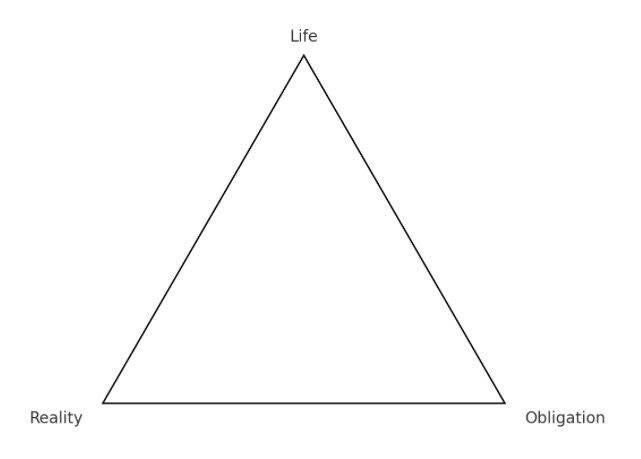Freedom according to Simmel

Both traditional societies and utopian progressive societies imposed cultural and lifestyle norms on their members, limiting individual freedom. In traditional societies, tradition dictated what is best for people, with state and church imposing a rigid control, while socialist societies, despite their benevolent aims, enforced uniformity that tolerates no deviation. Liberal societies with capitalist economies, parliamentary democracies, and individual rights have achieved unprecedented levels of freedom, allowing self-determined life choices within the law. Of course, these liberal societies are not perfect either. Modern societies are in constant flux. Living freely is demanding and often leads to failed experiments in self-determined living. Freedom, though simple in theory, raises numerous questions about its practice and the societal conditions needed for it.
Georg Simmel explored these questions. He identified social differentiation and a developed monetary economy as favorable conditions for freedom, allowing both freedom FROM societal constraints and the freedom TO develop individual life forms. Simmel proposed to study the societal conditions enabling freedom. His philosophy advocates for a balance between societal norms and individual self-expression. Simmel identified fundamental dualisms such as being vs. becoming, and divine vs. earthly principles that dynamically shape society’s character.
Simmel found Kant’s categorical imperative outdated and unsuitable due to its dualisms (e.g., subject-object, individual-general). Instead, he proposed a triad of reality, obligation, and life, where life encompasses both reality and obligation, and an external ethical rule imposed from above had to be rejected. He advocated for an ethical law arising from within the individual, guiding self-realisation and giving life a purpose. In a complex, differentiated society where cultural eclecticism fails to provide direction, individuals must create and follow their own ethical rules, transforming their lives into ethical masterpieces. This individual law provides security for autonomous living and lends meaning and coherence to one’s biography.
Simmel wrote about both freedom from traditional powers, and the struggle for uniqueness and differentiation, which is often at the expense of equality since differing talents and abilities lead to unequal opportunities. Simmel sees art as the model for the ultimate expression of personal development, where individuals strive to realize their unique potential. He saw Goethe's approach to life; constantly developing and producing; as embodying an ideal where individual uniqueness shapes a personal ethical cosmos.
Achieving freedom in modernity thus involves creating and adhering to one’s own ethical code. This is challenging and demands education and socialization that encourage individuals to embrace this demanding, yet fulfilling, pursuit.
Source: Müller, H.P. (2023), Georg Simmel und die Freiheit, in: C. Marty, H.P. Müller, B. Thériault (Eds.), Kulturkritik im Namen der Freiheit – Von Georg Simmel bis Hannah Ahrendt, Bielefeld: transcript Verlag.